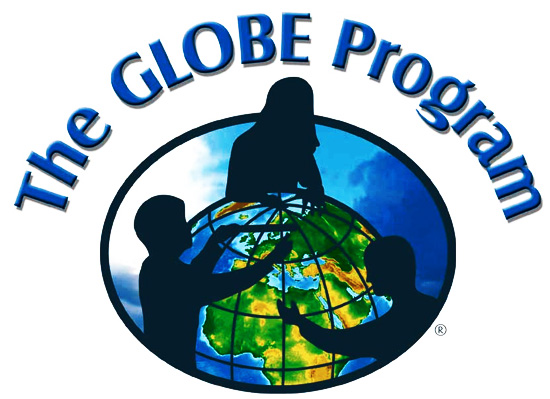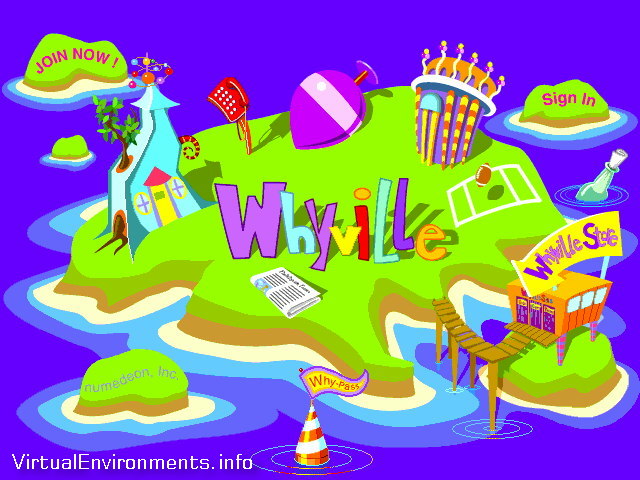Travelling the GLOBE to WhyVille… Bigger is better?
The vast array of online tools available for teachers to use to supplement their classroom teaching in a blended learning approach can be overwhelming. What to use? When to use it? How to use it? Will it make the learning experience better?
I explored Globe and Whyville and I think they both have a wide range of educational uses for Science. Globe is an online virtual community of practice that involves a collaborative effort between expert scientists, teachers and students from around the world where the participants are (as Doug stated) ‘doing’ science. Whereas Whyville seems to me an interactive virtual learning environment where students can share knowledge and participate in highly engaging and interactive science activities. Both tools are motivating if used appropriately and both can “distribute the use of advanced tools to solve real world problems”. Although I didn’t see the sharing of artefacts, there are varied pedagogical opportunities for promoting inquiry learning in each site. I also liked the Scientists blog- where guest bloggers with interesting questions like “Using your GLOBE data, how many years do you have with March that comes in like a lion and out like a lamb? How many years are there that have no considerable change? Do you believe March usually comes in like a lion and out like a lamb?” have a forum. Found at: http://blog.globe.gov/sciblog/
GLOBE: Interesting stats:
• 7.4% of US schools are GLOBE Schools,
• GLOBE has trained 15,539 U.S and 6,305 international teachers,
• 8.4 million measurements been taken worldwide,
• over 5000 schools have contributed data,
• available in 6 languages,
• more than 20,000 teachers from more than 12,000 schools have completed GLOBE training,
• between 153,000 and 244,000 students have reported data to the GLOBE website in the past 3 years (Penuel and Means, 2004 and Butler and MacGregor, 2003)
It is obvious that GLOBE is indeed global and knowledge diffusion is inherent by the nature of the projects within.
How is knowledge relevant to science generated in these networked communities?
GLOBE: knowledge is generated by all members of the scientific community.
• Students: beneficiaries and/or contributors to knowledge diffusion?
The GLOBE program promotes inquiry by providing a contextual, expert driven learning platform where the students collaborating in a project not as mere data collectors but as contributors to an actual scientific investigation. The students are responsible for reporting the data that they retrieve to the GLOBE website where it becomes part of a vast, worldwide repository of science data (Penuel and Means, 2004). The trained GLOBE teachers are equipped with the skills required to guide students through the process of learning to take accurate measurements over time and encourage generation of their own questions and hypotheses. The students learn cross-curricular concepts from science, geography, mathematics and technology. The students gain confidence as they build scientific skills working in a partnership with practicing scientists. The entire process can empower the learners to value science and technology, generates curiosity and encourages them to want to explore their world scientifically (Butler and MacGregor, 2003).
• Teachers: guide on the side?
Teachers have an important role in GLOBE projects as facilitators of learning and data collection supervisors. They need to be up skilled to use the GLOBE tools and affordances and they also have to align their projects with their curriculum. In doing so, they increase the likelihood of data reporting consistency and consequently improve student learning. Penuel and Means (2004) postulate that data reporting levels are positively affected when both teachers and designers share a vision for the project. The training for teachers is provided by GLOBE partner organizations, typically universities. This is a reciprocal relationship where they give PD to the teachers on how to use the protocols and often provide the associated learning activities and the teachers then ensure that they chose GLOBE projects (Penuel and Means, 2004).
According to Butler and MacGregor (2003), teachers report that science inquiry skills are greatly improved when incorporating a GLOBE project, especially observational, measurement and technological skills. They believe that when students work with scientists, and peers from around the globe, their sense of responsibility, ownership and pride is significantly enhanced. Ultimately, teachers believe that GLOBE provides learners with a meaningful idea of what “doing science” is all about (Butler & MacGregor, 2003). GLOBE recognizes the important role that teachers have to play in order for projects to be successful. In addition, Penuel and Means (2004) suggest that when multiple teachers in a school or district interact with each other they have a greater faculty for implementing innovations than those who work in isolation.
• Experts: scientists save the day?
The scientists play a vital role in every GLOBE project, for without them there would be no GLOBE. Penuel and Means (2004) describe how each scientist develops and explains a specific set of data collection protocols for their investigation. This instruction set enables the K-12 students to take relatively accurate measurements of their local atmosphere, bodies of water, soil, and land cover under the guidance of their teacher. The scientists depend on the students to collect data in order to have enough data in the networked data archive- no data = failed project. Therefore, the scientists become mentors for the students and help them. The scientists will only request data collection if there is a research team who require the data: “Behind every GLOBE measurement protocol is a research group that has ensured that the protocol is adequate to produce research quality data, has approved the instrument specifications, and stands ready to review all data for purposes of quality control.” Further, the scientists are prepared to conduct research using the student data, and to publish their results in the refereed scientific literature” (Butler & MacGregor, 2003, p.9).
• Community: citizen science?
Knowledge relevant to science is generated in GLOBE by students and adult citizens. It is a hope of GLOBE that this contribution will continue and increase. There are opportunities for GLOBE schools to take data from ‘amateur networks of citizens’ and contribute to GLOBE projects (Penuel and Means, 2004).
• Issues: what’s the problem?
In their research, Penuel and Means (2004) discovered that some students:
• struggled making sense of their collected data
• had difficulty understanding the rationale behind their data collection
• didn’t recognize that there were opportunities for their own inquiries stemming from heir data collection
• had little opportunity to analyse data
• focused on data collection only
However, if used frequently, studies have shown that GLOBE data analysis in the classroom propels the development of their inquiry skills and prevents misconceptions (Penuel and Means, 2004).
WhyVille: knowledge is there to share.
In Whyville I really liked the intuitive, easy to use interface and the exceptional focus on cybersafety. Students could earn “$clams” by playing games (though could buy more) and I found the science sections in depth, interactive and interesting. The chat function allows students to communicate synchronously while they move through the Whyville or while the challenge them in games. Activities were scaffolded with tips and explanations for those of us who don’t ‘get it’ off the mark. My favourite places were the Critter Care, FitZone and WhyReef. However, I did not feel as though I was in any way contributing to the knowledge base. I was actively involved in science activities, but was I doing science? I do not think Whyville can be fairly compared to GLOBE because they are like MACs and PCs!
References:
Penuel, W.R., & Means, B. (2004). Implementation variation and fidelity in an inquiry science program: Analysis of GLOBE data reporting patterns. Journal of Research in Science Teaching, 41(3), 294-315. UBC E-Journal.
Butler, D.M., & MacGregor, I.D. (2003). GLOBE: Science and education. Journal of Geoscience Education, 51(1), 9-20.
a response to a query from JB for clarification about when I’d use Whyville or GLOBE:
Doing Science vs Engaged in Science activities….
Globe and Whyville are two very different tools which I would use for different reasons as a teacher. The both appeal to a K-12 audience though GLOBE is more versatile for the older aga bracket.
Globe is an online virtual community of practice that involves a collaborative effort between expert scientists, teachers and students from around the world where the participants are (as Doug stated) ‘doing’ science. -more skills based, collaborative knowledge diffusion
recommend when- there is a scientist who has a project that meets our curriculum objectives, learning goals may include to develop skills in the scientific process, collection of data, generation of hypotheses, collaboration and/or analysis
Whereas Whyville seems to me an interactive virtual learning environment where students can share knowledge and participate in science activities that are highly engaging and interactive . -more one-way, consumption-type knowledge diffusion
recommend when: teacher wants students to have an engaging and interactive experience to learn new knowledge or refine exisiting concepts ie. students learning about marine habitats and/or feeding relationships would go to WhyReef and complete the food chains and/or go scuba diving to identify fish
Comparing WISE and GLOBE
https://creately.com/diagram/gyr245mh1/vd1jx4gfPdBLDyus4R5kUf3tT4U%3D


